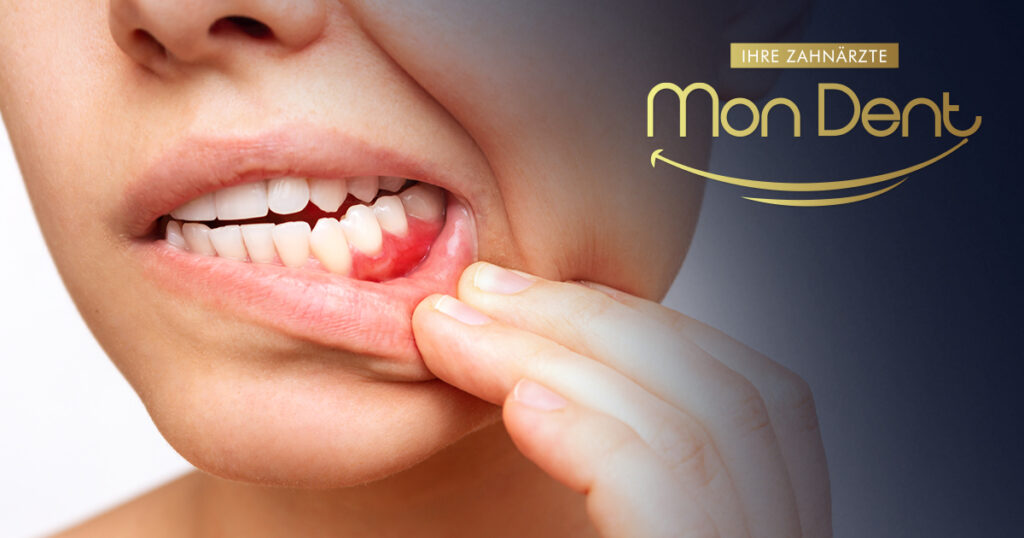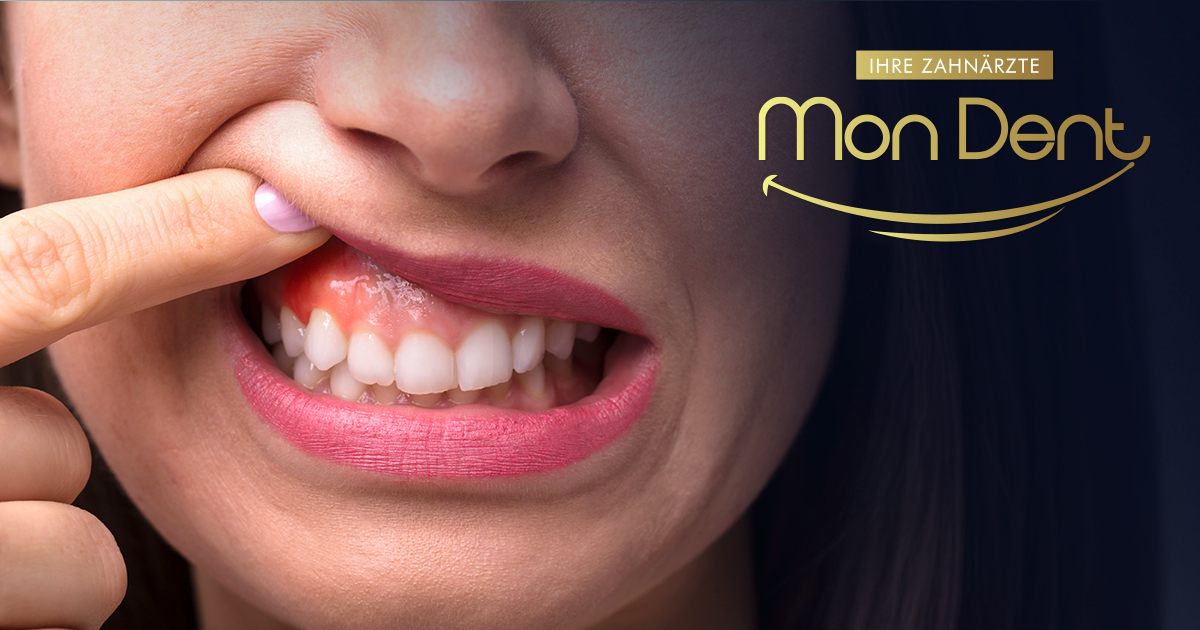Content:
- What is gingivitis and why does it occur?
- How long does gingivitis last?
- Gingivitis pain – how to relieve discomfort?
- How to prevent gum inflammation?
- When should you seek help from a dentist?
- Conclusion
Gum problems can be extremely uncomfortable, and one of the most common is gingivitis. If you have noticed redness, swelling, or feel unpleasant pain in the gum area, it is important to react in time to prevent complications and preserve the health of your teeth.
In this blog, we will explain in detail what gingivitis is, why it occurs, how long gingivitis lasts, and what measures you should take to alleviate symptoms and prevent further complications.
MonDent stomatološka ordinacija svim svojim pacijentima naglašava važnost redovne posjete stomatologu kako ne bi dolazilo do teških i većih komplikacija kada je u pitanju zdravlje vaših zuba. Ukoliko vam se javljaju problemi kao što je upala zubnog mesa ili bol u zubu, zakažite pregled kod nas i mi ćemo vam pružiti najkvalitetniju uslugu parodontologije.
What is gingivitis and why does it occur?
Gum inflammation, also known as gingivitis, is a very common oral disease caused by a bacterial infection. It usually precedes more serious problems such as periodontitis, so it is important to recognize and treat it in time.
But in order to prevent gum problems, it is important to know what causes gingivitis and what you should pay special attention to to prevent gingivitis from occurring.
Main causes of gingivitis
Gingivitis is most often caused by poor oral hygiene. When plaque builds up on your teeth, the bacteria in it can irritate your gums. Some other causes include:
- Poor brushing – Brushing your teeth for too long or pressing too hard can leave cavities on your teeth. Our advice is to choose brushes that are softer and have more bristles on the brush so that they don't hurt your gums when brushing.
- Insufficient flossing – Failure to clean between teeth allows bacteria to accumulate, which causes inflammation. Many people avoid or forget to floss. In addition to a toothbrush, floss should be everyone's primary means of brushing their teeth.
- Smoking – Tobacco reduces the gums' ability to fight infections.
- Hormonske promjene – tokom trudnoće i menopauze može se povećati osjetljivost zubnog mesa zbog hormonalnih fluktuacija
- Certain medications – Medications such as antiepileptics or high blood pressure medications can cause increased sensitivity or swelling of the gums.
- Vitamin C deficiency – Not enough vitamin C weakens the immune system, which can worsen gum disease. If you often have
Symptoms you shouldn't ignore
Symptoms of gingivitis usually appear gradually and may include:
- Redness and swelling of the gums
- Bleeding when brushing or flossing
- Sensitivity or pain when chewing
- Bad breath (bad breath caused by bacterial deposits or inflamed gums)

How long does gingivitis last?
Gingivitis varies in severity and how quickly it is treated. Milder forms of gingivitis can resolve in a few days with proper oral hygiene and thorough tooth cleaning. However, if symptoms persist for more than a week or worsen, it is essential to seek professional help from a dentist.
Factors that influence the duration of inflammation
- Timely response (the earlier you start treatment, the faster the recovery will be, so don't ignore the symptoms and react immediately)
- The person's general health condition
- Regularity and quality of teeth cleaning
Gingivitis pain – how to relieve discomfort?
Bolovi koji se javljaju uslijed upale zubnog mesa mogu značajno narušiti kvalitet svakodnevnog života. Postoje jednostavne i učinkovite metode kojima možete ublažiti ove neugodne simptome kod kuće. Potrebno je naglasiti da ukoliko osjećate jaku upalu i neizdrživ bol u zub da se odmah javite stomatologu. Stomatološka ordinacija MonDent nudi stručnjake iz stomatologije koji će svaki vaš problem riješiti na vrrijeme i uspiješno!
Home treatments for pain
- Ispiranje toplom slanom vodom: Jednostavno pomiješajte pola kašićice soli u čaši tople vode i ispirite usnu šupljinu nekoliko puta dnevno.
- Korištenje biljnih i toplih napitaka: Kamilica, kadulja ili aloe vera imaju umirujuća i protivupalna dejstva.
- Hladni oblozi: Prislonite hladnu oblogu ili led umotan u krpu na obraz u području upale kako biste smanjili bol i otečenost.
Professional treatments at the dentist
If symptoms are intense or long-lasting, it is imperative to see a dentist. Depending on your current condition, your dentist may recommend professional teeth cleaning, scaling, or other procedures such as laser treatment to help speed recovery.
Sometimes the condition is such that the dentist must prescribe special antibacterial preparations or antibiotics if the inflammation is more serious or if there is a risk of the infection spreading. Gingivitis is not a harmless condition, so it is advisable to make an appointment with your dentist so that he can take all the necessary steps to resolve your problem.

How to prevent gum inflammation?
The best way to prevent gingivitis is to practice good oral hygiene. Here are some practical tips:
- Brush your teeth at least twice a day with a quality toothbrush and toothpaste that contains fluoride.
- Use dental floss regularly to remove food debris from between your teeth.
- Posjećujte stomatologa najmanje dva puta godišnje radi preventivnog pregleda i čišćenja kamenca.
- Avoid tobacco products and reduce your sugar intake.
- Make sure you eat a balanced diet rich in vitamin C and other essential nutrients.
When should you seek help from a dentist?
It is important to recognize when home care is sufficient and when professional help is necessary. You should definitely visit a dentist if:
- Symptoms last longer than seven days without improvement or you even notice a worsening of the condition.
- You notice heavy bleeding, pus, or extremely swollen gums, which may indicate a more serious infection.
- The pain becomes severe or spreads to other parts of the mouth, which may be a sign of a deep infection or a more serious complication.
- You notice that your teeth are starting to wobble or you have a feeling of instability in your dental arch.
- You experience a fever, which may indicate the infection has spread beyond the gums.
Conclusion
Gum disease can be unpleasant, but with timely intervention and good oral hygiene, most problems can be quickly resolved. Do not ignore symptoms and always take preventive measures to maintain the health of your oral cavity. Regular check-ups with your dentist are the best prevention that will help you maintain healthy and beautiful teeth throughout your life.
Za zdrave i lijepe zube vaša stomatološka ordinacija MonDent!





